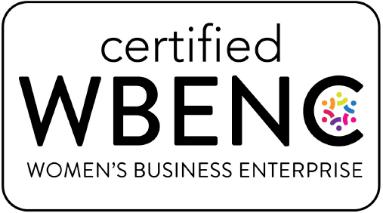Authored by:

Justin R. Muehlmeyer
Patent Attorney
All Posts by Justin
What Not to Do Until You File a Patent
If you or your company has developed an innovative product, it is natural that you are excited to get it to market or to at least let the world know that it is coming soon. However, there are several important considerations that must be taken into account before you make that announcement or first sale, lest you risk giving up your own patent rights in the invention. The following list represents some of the most common mistakes made by inventors and would-be patent seekers.
Using or Selling Your Invention Could Prohibit You From Patenting It
Only “novel” inventions are patentable. Even as the inventor, you could do something that makes your own invention no longer “novel”.
By using your invention publicly or selling the invention or selling products embodying the invention, you risk your patent rights, even if you were the one to publicly use the invention or sell it. In the United States, such acts trigger a 12-month window during which you must apply for a patent – otherwise, you permanently lose the right to obtain a patent for that invention. More concerning, such acts immediately prohibit you from obtaining international patent protection, because many foreign countries grant NO grace period, meaning that you automatically dedicate your patent rights to the public as soon as you do such acts.
So what is a public “use”? Or a “sale”? It all depends on what you did. Decades of judicial opinions might help answer that question, but in the end you do not want to rely on arguing that whatever you did was not a “public use” or a “sale” because given the inherent ambiguities of the law, there is almost always room for a patent examiner or the defendant you are suing to argue that your conduct was in fact invalidating of your patent rights.
For example, say you end up getting an issued patent for your invention and you sue an infringer for patent infringement. That defendant will likely search to the ends of the earth for everything you published about the invention or that you did with it. They will find that website announcement you made ten years ago. They will find that agreement you made with another company to manufacture the invention. And that defendant will drum up an argument based on those acts, no matter how reasonable, that any one of these acts invalidated your rights in your issued patent. This could be enough, even if they are legally wrong, to make your enforcement efforts impractical or too expensive. Avoid that problem now by filing a patent application before you do anything with your invention that is not clearly secret testing or development, or at least consult your patent attorney first before doing anything with your invention.
But be careful: it matters what you describe in your patent application.
Ideally, you protect your rights first by filing a patent application. But beware – the patent application must actually describe the invention and products you end up asserting patent rights for. This seems obvious, but the devil is always in the details. Many people, thinking that they have taken the correct step in filing a patent application, fall into that trap of filing a patent application that does not fully describe their invention or that does not describe all the versions or variations of the products embodying the invention that they end up claiming patent rights in.
For example, say you offer a product A for sale and you file a patent application a few days after that. You have one year from that date of sale – not the date you filed the patent application – to file the patent application for A. However, over the next months, say you improve product A and make a product B which is similar to but not identical to product A. The patent application filed, which only clearly described product A, does not necessarily serve as priority for product B, and if you don’t file a patent application describing product B within a year of product B’s sale, it is possible that you would lose your rights to product B.
Avoid forfeiting your patent rights by knowing exactly what is described in your patent application and compare that to what you are actually doing with your products.
Peacock Law, P.C. has the expertise to give you the confidence you need to develop your products and to bring them to market while protecting your patent rights. Contact us for help in patenting your intellectual property.


